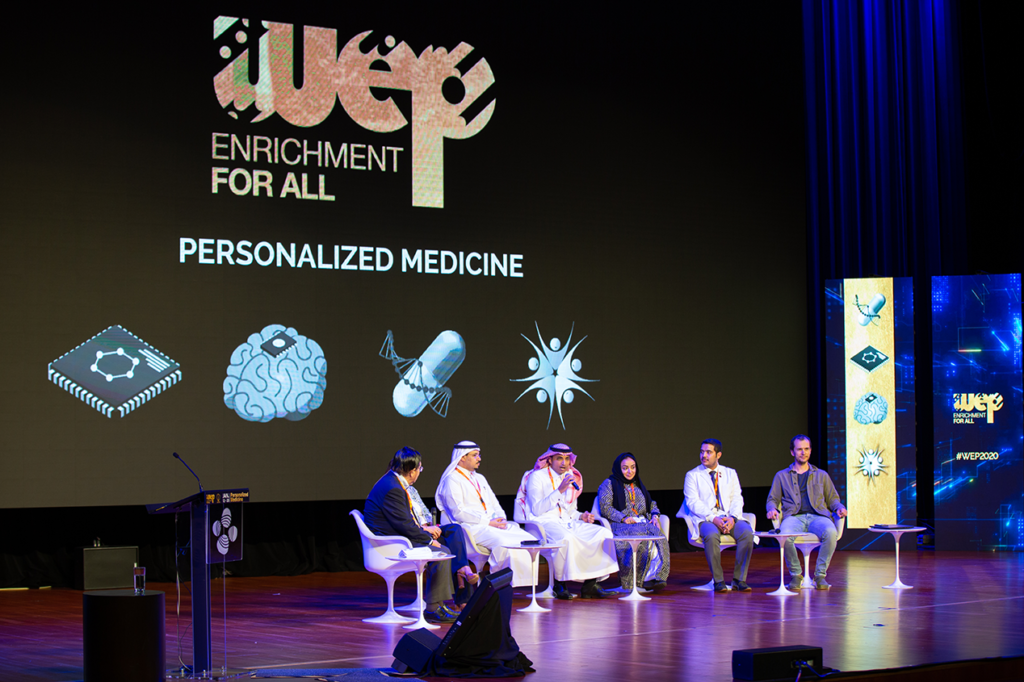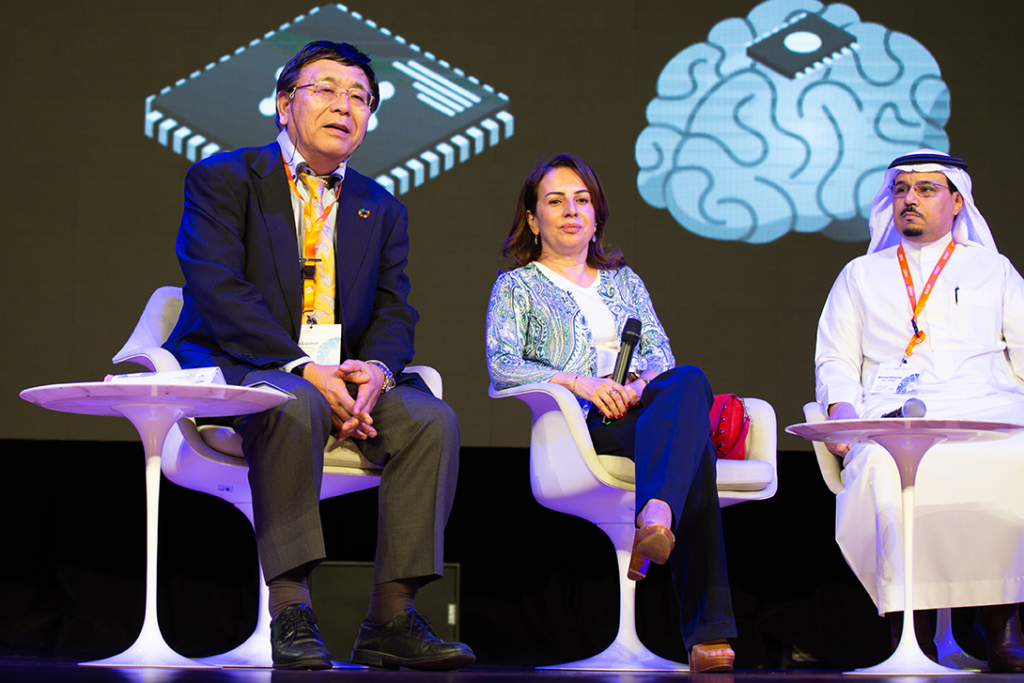The Enrichment Office offers communication internships to students at KAUST during WEP. This article was written by Ananya Ashok, student, Marine Science (Ph.D.)
The 2020 Winter Enrichment Program (WEP), which focused on the theme of “personalized medicine,” and the University’s Computational Bioscience Research Center Conference on Digital Health brought a panel of seven experts in the fields of medicine and technology to KAUST. The panel, which included KAUST professors and medical professionals from the Kingdom, discussed ways to improve human health through digital technology.
The panel , co-moderated by Takashi Gojobori, KAUST distinguished professor of bioscience, and Dr. Fadwa Attiga from Global Oncology Inc. featured panelists Ahmed Al-Barrak, professor of medical informatics, King Saud University; Dr. Nasser Al-Jehani, physician and clinical informatician at King Fahad Medical City; Dr. Malak Al-Thagafi, physician-scientist, KACST-KFMC; Dr. Ahmad Alonazi, chief medical officer, Wateen; and Robert Hoehndorf, KAUST assistant professor of computer science.
What is digital health and how could it help?
The discussion began by defining digital health. Hohendorf, Al-Jehani and Al-Thagafi shared their perspectives on the concept, which can be summarized as: “Digital health uses digital technology and data in order to improve our health and manage it and therefore expands the potential of digital health initiatives.”

Digital health—opportunities and challenges for the Kingdom
Collectively, the speakers identified some key opportunities for digital health, such as:
(1) The ability to reach remote locations and hospitals
(2) Support for the development of clinical support systems
(3) New business opportunities for technology companies
(4) Innovative self-screening tools for high-risk groups
(5) Creating awareness on potentially contagious seasonal diseases.
By predicting population dynamics, digital health could also play a role in preparedness.
“For example, Saudi Arabia has a young population,” mentioned Al-Thagafi.” We have to think about the issues that could come with an aging population, as faced by some other countries. We have the time; we can predict and be prepared. We can inform people how to take their own initiatives.”

Among the challenges, data privacy and associated concerns should be considered in digital health.
“Accessibility of medical data will have to take into consideration the human factor into it,” Al-Thagafi said. “There could be legal implications. We want to identify people who are at risk so that we can help them more.”
Another challenge is “looking at digital health from the social aspect,” said Alonazi. “Digital health is changing the culture of healthcare. When we are talking about new cultures, we have to recognize that it will go through phases of adoption. I think we are making good progress in going through these phases.”
A word of advice
Co-moderator Attiga steered the discussion towards advice for students looking to pick research projects and fulfill their potential. In response, Al-Thagafi said: “Go and ask patients. Spend time with patient families. Ask what they need.”
The panel emphasized that building networks as research students is crucial.
“Build networks with other institutions where you can apply and test the research you do here in KAUST,” said Al-Barrak.
The panelists identified creating feedback loops in which clinical practitioners and medical professionals integrate into the research canvas as a direction to pursue.
“It is not only about what KAUST can do for medical professionals. Let’s learn from clinicians. Learn their work—problems and constraints—and think in research questions to solve them,” said Hoehndorf.

The role of KAUST in digital health
The panelists agreed that there is plenty of potential for KAUST’s role in a digital health future.
“KAUST can become a hub for not only digital technology scientists come but also for clinical leading to innovations for the kingdom and beyond,” said Hoehndorf.
“We don’t really need another clinical research institution. However, we do need the complementary role of each other,” Al-Thagafi added.
Concluding, Gojobori stated: “We have to take a leap to help this issue. 2020 will also be a digital health revolution year.”
About WEP
The annual Winter Enrichment Program (WEP) is one of the hallmarks of KAUST. WEP is a two-week program with the primary purpose of enriching and inspiring the University’s students and KAUST community members, as well as academic and industrial partners and guests, who are all invited to join the program.
All the keynote lectures and Sciencetown podcast interviews are available on YouTube.
Watch the full “Digital Health Panel Discussion” below.

